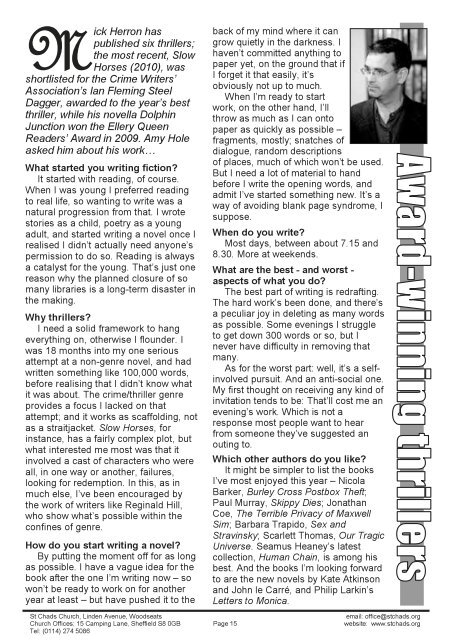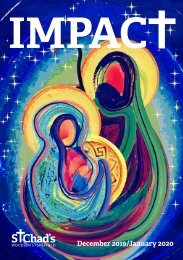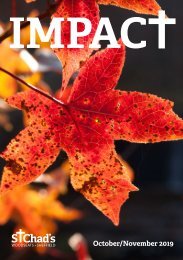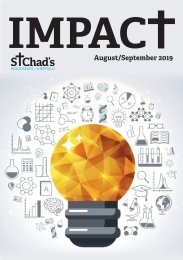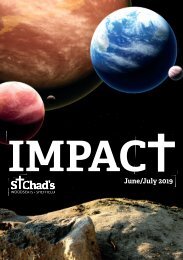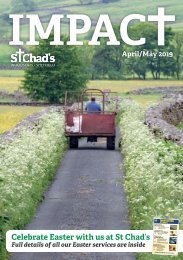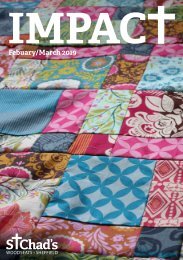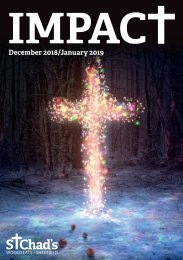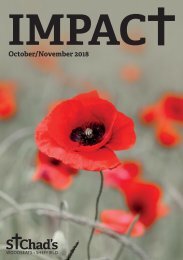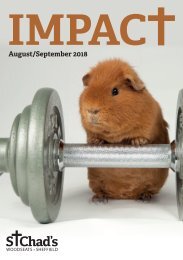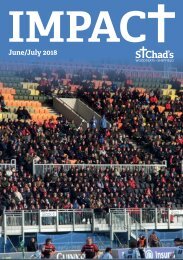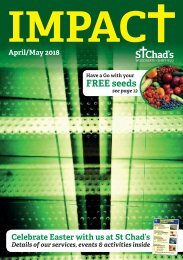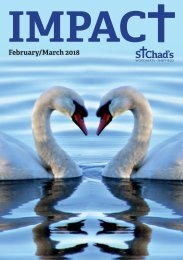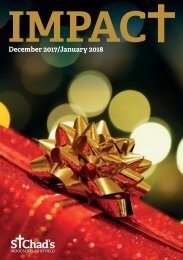2011-02
2011-02
2011-02
Create successful ePaper yourself
Turn your PDF publications into a flip-book with our unique Google optimized e-Paper software.
M<br />
ick Herron has<br />
published six thrillers;<br />
the most recent, Slow<br />
Horses (2010), was<br />
shortlisted for the Crime Writers’<br />
Association’s Ian Fleming Steel<br />
Dagger, awarded to the year’s best<br />
thriller, while his novella Dolphin<br />
Junction won the Ellery Queen<br />
Readers’ Award in 2009. Amy Hole<br />
asked him about his work<br />
What started you writing fiction?<br />
It started with reading, of course.<br />
When I was young I preferred reading<br />
to real life, so wanting to write was a<br />
natural progression from that. I wrote<br />
stories as a child, poetry as a young<br />
adult, and started writing a novel once I<br />
realised I didn’t actually need anyone’s<br />
permission to do so. Reading is always<br />
a catalyst for the young. That’s just one<br />
reason why the planned closure of so<br />
many libraries is a long-term disaster in<br />
the making.<br />
Why thrillers?<br />
I need a solid framework to hang<br />
everything on, otherwise I flounder. I<br />
was 18 months into my one serious<br />
attempt at a non-genre novel, and had<br />
written something like 100,000 words,<br />
before realising that I didn’t know what<br />
it was about. The crime/thriller genre<br />
provides a focus I lacked on that<br />
attempt; and it works as scaffolding, not<br />
as a straitjacket. Slow Horses, for<br />
instance, has a fairly complex plot, but<br />
what interested me most was that it<br />
involved a cast of characters who were<br />
all, in one way or another, failures,<br />
looking for redemption. In this, as in<br />
much else, I’ve been encouraged by<br />
the work of writers like Reginald Hill,<br />
who show what’s possible within the<br />
confines of genre.<br />
How do you start writing a novel?<br />
By putting the moment off for as long<br />
as possible. I have a vague idea for the<br />
book after the one I’m writing now – so<br />
won’t be ready to work on for another<br />
year at least – but have pushed it to the<br />
back of my mind where it can<br />
grow quietly in the darkness. I<br />
haven’t committed anything to<br />
paper yet, on the ground that if<br />
I forget it that easily, it’s<br />
obviously not up to much.<br />
When I’m ready to start<br />
work, on the other hand, I’ll<br />
throw as much as I can onto<br />
paper as quickly as possible –<br />
fragments, mostly; snatches of<br />
dialogue, random descriptions<br />
of places, much of which won’t be used.<br />
But I need a lot of material to hand<br />
before I write the opening words, and<br />
admit I’ve started something new. It’s a<br />
way of avoiding blank page syndrome, I<br />
suppose.<br />
When do you write?<br />
Most days, between about 7.15 and<br />
8.30. More at weekends.<br />
What are the best - and worst -<br />
aspects of what you do?<br />
The best part of writing is redrafting.<br />
The hard work’s been done, and there’s<br />
a peculiar joy in deleting as many words<br />
as possible. Some evenings I struggle<br />
to get down 300 words or so, but I<br />
never have difficulty in removing that<br />
many.<br />
As for the worst part: well, it’s a selfinvolved<br />
pursuit. And an anti-social one.<br />
My first thought on receiving any kind of<br />
invitation tends to be: That’ll cost me an<br />
evening’s work. Which is not a<br />
response most people want to hear<br />
from someone they’ve suggested an<br />
outing to.<br />
Which other authors do you like?<br />
It might be simpler to list the books<br />
I’ve most enjoyed this year – Nicola<br />
Barker, Burley Cross Postbox Theft;<br />
Paul Murray, Skippy Dies; Jonathan<br />
Coe, The Terrible Privacy of Maxwell<br />
Sim; Barbara Trapido, Sex and<br />
Stravinsky; Scarlett Thomas, Our Tragic<br />
Universe. Seamus Heaney’s latest<br />
collection, Human Chain, is among his<br />
best. And the books I’m looking forward<br />
to are the new novels by Kate Atkinson<br />
and John le Carré, and Philip Larkin’s<br />
Letters to Monica.<br />
St Chads Church, Linden Avenue, Woodseats<br />
email: office@stchads.org<br />
Church Offices: 15 Camping Lane, Sheffield S8 0GB Page 15 website: www.stchads.org<br />
Tel: (0114) 274 5086


